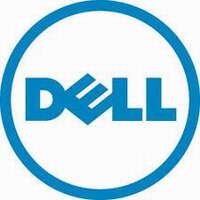AAPL tops $300: Still waiting on Michael Dell's apology


In Oct. 1997, Apple stock stood around $17 a share and Dell at $33. At the ITxpo, Gartner Group's long-running IT analyst conference, many technology CEOs spoke to the enterprise crowd, including Michael Dell. The question of the moment appears to have been Apple and Steve Jobs, who earlier that year had returned to Apple's board and taken over in the summer as interim CEO.
Michael Dell, among others, was asked about what he would do if he were CEO of Apple:
"What would I do? I'd shut it down and give the money back to the shareholders."
So, for the computer industry, especially in enterprise computing, Apple was a big joke. The company and its user base just didn't get it.
Dell's success was all about getting new models on the market quickly, keeping inventory low, avoiding the distribution costs of the channel through direct sales, and giving users what they wanted with build-to-order production.
Apple sold systems that ran counter to the increasingly commodity Wintel concept. Just as now, Macs came with a proprietary OS but worse to the rest of the industry, the Mac used a unique RISC processor (unique being another word for "expensive"). But like the rest of tech companies in the channel, Apple was susceptible to demand cycles, and problems with forecasting (so that there was an oversupply of the dog units in the channel and an under-supply of the popular models).
However, over the succeeding years, Apple (and everyone else) picked up on parts of the direct sales and build-to-demand model. At the same time, Cupertino focused on technology innovation in its OS transition, cutting-edge industrial design and materials, the use of Intel processors, increased support for standards, and increased quality controls.
Behind the scenes, Dell kept driving down cost in its boxes, much like Wal-mart Stores does in the consumer retail market. Each of its suppliers was expected to reduce costs on a regular basis, or some other contractor would be found to meet the lower price.
I remember attending a storage conference around 2002 (the exact year escapes me), where several hard disk vendors pleaded with their competitors to hold the line against such practices by Dell. Their concern was that quality would be impossible to maintain under such great pressure and such thin margins.
Check out: Dell and the Wish for Apple's Cool
And so it happened. From riding high in 1997, Dell tanked over the next decade. Its quality declined and its systems had nothing to distinguish the so-called "Dell Experience" other than failure. In 2006, Dell executives admitted that its support program sucked and that its products stank.
"We know we've not done this perfectly in the past," then CEO Kevin Rollins said at a press event in New York, referring to service and support. "The Dell experience is the number-one priority of the company. It is where we are going to invest this year and for the long term to provide the best customer experience, bar none."
Dell this month settled a lawsuit that it knowingly shipped millions of faulty computers and then concealed those problems from its customers. The primary cause of the problems were cheap capacitors. Or should we say, overly cheap capacitors.
Michael Dell and the company this month finally settled with the SEC on charges the company had taken hidden payments from Intel to not use AMD chips and used fraudulent accounting practices to meet analysts' targets.
In 2006, Apple market cap passed Dell's. In 2008, Apple cap was 4x Dell's.
At the end of the day this past Friday, Apple's market cap topped $287 billion. The same day, Dell's market cap stood at $28B. Apple's market cap is now more than 10 times that of Dell.
So much for the Dell business model and so much for the 1997 strategic advice from Michael Dell. Certainly, he hasn't taken his own advice for his company. Perhaps that's because he has the example of Apple and Steve Jobs to advise him, even when he is looking in the rear-view mirror.
Here's a prediction: More Apple products will be sold in the enterprise in 2010 than have ever been sold before. And 2010 will mark a new age for Apple in business computing and as a platform in the enterprise.
Note that at the same 1997 ITxpo conference, Scott McNealy, then chairman, president and CEO of Sun Microsystems, was asked why Sun might want to buy Apple (a rumor that surfaced several times in the 1990s).
"They're got a great building we'd love to have. It's right across the street from JavaSoft."
Oops, Sun doesn't even exist any more.